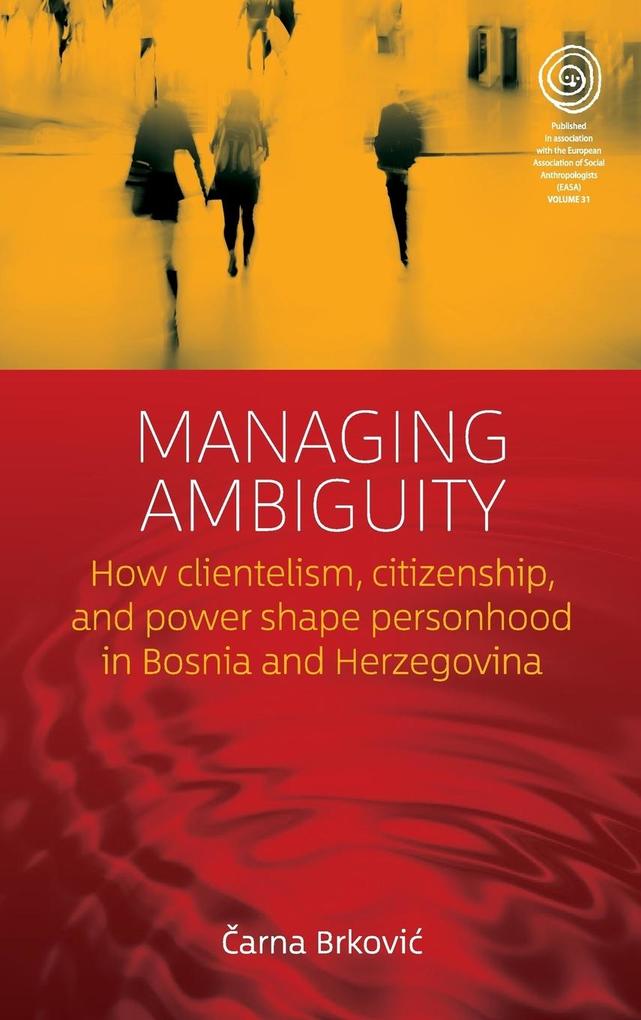
Zustellung: Mi, 13.11. - Sa, 16.11.
Versand in 1-2 Wochen
VersandkostenfreiBestellen & in Filiale abholen:
Why do people turn to personal connections to get things done? Exploring the role of favors in social welfare systems in postwar, postsocialist Bosnia and Herzegovina, this volume provides a new theoretical angle on links between ambiguity and power. It demonstrates that favors were not an instrumental tactic of survival, nor a way to reproduce oneself as a moral person. Instead, favors enabled the insertion of personal compassion into the heart of the organization of welfare.
Managing Ambiguity follows how neoliberal insistence on local community, flexibility, and self-responsibility was translated into clientelist modes of relating and back, and how this fostered a specific mode of power.
Managing Ambiguity follows how neoliberal insistence on local community, flexibility, and self-responsibility was translated into clientelist modes of relating and back, and how this fostered a specific mode of power.
Inhaltsverzeichnis
Figures
Acknowledgments
Note on transliteration
Introduction
PART I: PERSONHOOD
Chapter 1. Creating Knowledge about Others: Locating, Knowing "by Sight", and Ethnography
Chapter 2. Favors Reproduce Social Personhood
PART II: CITIZENSHIP
Chapter 3. Local Community and Ethical Citizenship: Neoliberal Reconfigurations of Social Protection
Chapter 4. Pursuing Favors within a Local Community
PART III: POWER
Chapter 5. Managing Ambiguity in Social Protection
Chapter 6. Navigating Ambiguity: the Moveopticon
Conclusion: Morality, Interest, and Sociality in the Global Postsocialist Condition
Bibliography
Index
Acknowledgments
Note on transliteration
Introduction
PART I: PERSONHOOD
Chapter 1. Creating Knowledge about Others: Locating, Knowing "by Sight", and Ethnography
Chapter 2. Favors Reproduce Social Personhood
PART II: CITIZENSHIP
Chapter 3. Local Community and Ethical Citizenship: Neoliberal Reconfigurations of Social Protection
Chapter 4. Pursuing Favors within a Local Community
PART III: POWER
Chapter 5. Managing Ambiguity in Social Protection
Chapter 6. Navigating Ambiguity: the Moveopticon
Conclusion: Morality, Interest, and Sociality in the Global Postsocialist Condition
Bibliography
Index
Mehr aus dieser Reihe
Produktdetails
Erscheinungsdatum
01. Juli 2017
Sprache
englisch
Seitenanzahl
210
Reihe
EASA Series, 31
Autor/Autorin
Arna Brkovi
Verlag/Hersteller
Produktart
gebunden
Gewicht
464 g
Größe (L/B/H)
235/157/16 mm
Sonstiges
HC gerader Rücken kaschiert
ISBN
9781785334146
Entdecken Sie mehr
Bewertungen
0 Bewertungen
Es wurden noch keine Bewertungen abgegeben. Schreiben Sie die erste Bewertung zu "Managing Ambiguity" und helfen Sie damit anderen bei der Kaufentscheidung.































